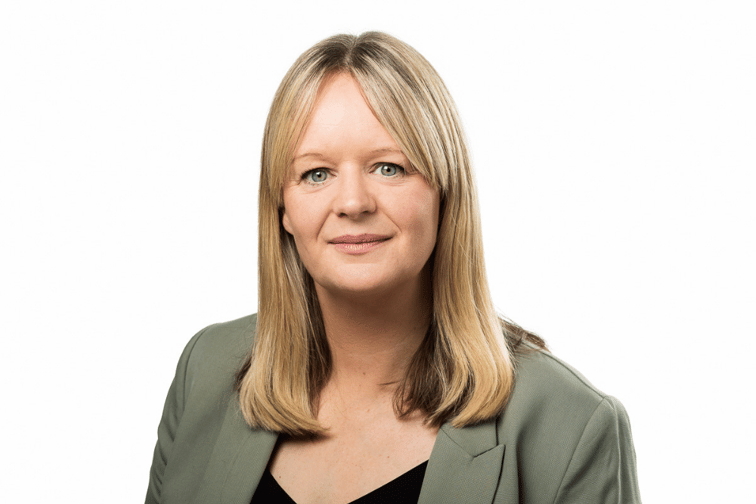

As a leading employee benefits provider in the UK – having protected some 1.6 million people and paid claims amounting to £366 million last year alone – the team at Unum UK have primary evidence of the role of early intervention in creating a holistic claims proposition.
Speaking with Insurance Business, director of claims, rehabilitation and medical services for Unum UK, Paula Coffey (pictured), highlighted several of the key takeaways from the 2021 data shared by the firm. The revelation that rehabilitation referrals for cancer claimants achieved a 98% return-to-work success rate was especially important, she said, as it validated the importance of rehabilitation in the early intervention services Unum provides.
“When we were early in the pandemic, we actually saw a drop in referrals into our rehab team and we had to respond very quickly,” she said. “We undertook some research to understand how people were potentially struggling at home [in ways] their employers weren’t aware of in that remote environment.
“So, we changed the way we were delivering our service which thankfully meant that last year we saw an increase in referrals into that team. And that was fantastic as it reiterated the importance of that team and of being able to evolve in response to constant changes in your external environment.”
Looking at some of the trends identified by Unum, she emphasised the increased focus on cancer due to several pressing factors, including reduced screenings during COVID and time delays around accessing treatment. This was reflected in the statistics that cancer accounted for 30% of group income protection claims, 36% of life insurance claims and 65% of critical illness claims.
However, she said, this presented her and her team with the opportunity to explore new means of supporting customers diagnosed with cancer – which is where the role of that early intervention and rehab piece really came into its own. And the statistic that 98% of cancer claimants achieved return-to-work success is a stark reminder of the critical human importance of those supports.
“Often people don’t understand that we can add a huge amount of value not just when somebody’s going through cancer treatment,” she said. “There’s so much support that we can provide through a number of the providers that we have in place, but also through our vocational rehabilitation team, that’s really focusing on reconditioning and supporting that individual after they’ve been through something so horrendous.”
It’s getting to be part of helping somebody return to their pre-illness life that makes her job so worthwhile, Coffey said, and, over the course of her career – and especially the COVID-period – she has been delighted to see the role of early intervention and rehabilitation come into their own. Touching on whether that trend is likely to continue, she spotlighted how COVID had put the question of being protected during a crisis front of mind for everybody.
“So, if I look at the group income protection area, it’s not only when somebody’s struggling at work or is going absent from work, but also when they’ve been on a claim – it’s important that they get access to those rehab services as well. Just because they’ve been on a claims payment doesn’t mean they don’t need support to get back to work when they’re well.
“It’s really about offering that support and not just assuming their employer has the time, support capacity, or knowledge and expertise to be able to do that. I think that has absolutely come into its own over the last couple of years and it will continue.”
What is concerning the Unum UK team at the moment, she said, is the later notifications on group income protection claims compared to the pre-COVID period. With that in mind, her team is actively working to reiterate the importance of maintaining connections with employees and to reinforce the importance of early intervention. There was a lot of focus on that last year by employers, but as the pandemic gradually recedes from view, it’s critical this focus remains and that firms keep their eyes open for the early signs that somebody might need support.
Looking at the wider market, Coffey said she has seen others that are starting to really embrace that proactive approach.
“If we look at PMI, some people are already applying that approach there,” she said. “They’re using this model to incentivise people to look after their health and they’re thinking about the bigger picture – how if [clients] manage their weight, cholesterol etc, this will lead to fewer claims from a PMI point of view. That’s really positive.
“If we look at that from a group level, it can positively impact premiums. But if we look at it from an individual level, the actions some providers are taking to provide access to smart watches or reduced gym members etc., are resonating with these individuals who will then feel more fondly about their insurance provider, and also potentially never have to make a claim.”
Insurance businesses need to understand the importance of such services and solutions in driving the right behaviours and decision-making across their insureds and that includes the impact that this ultimately has on wider society. There are a lot of businesses now on that journey, she said, and she believes many more will follow those leaders down that path – and she’s looking forward to seeing where this will take the wider profession.
